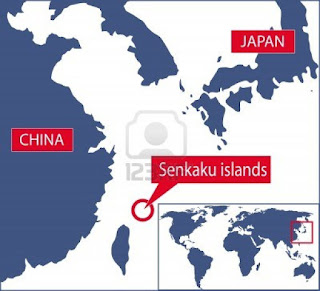 |
| Photo Credit : Wikipedia |
How often do you have an opponent arranging a more
honourable final send off? This was exactly what Tony Blair from Labour Party
did to honour the late Margaret Thatcher of Conservative Party with a military funeral procession
which is one level short of a state funeral. The Economist also noted that she was most probably the two most notable prime ministers in UK with Winston Churchill
being the other. Churchill was remembered for Normandy that ended World War II.
Thatcher most probably out ranked him with a smaller but more controversial
Falklands Wars and creating an economic school of thought known as Thatcherism.
President Ronald Regan is the other head of state that managed to postulate an
economic school of thought called Reganomics.
Her ascent to 10 Downing Street was significant for 2
reasons. Firstly, she had to unseat the then leader of the Conservative Party Edward Heath who was bitter about this to the end before she lead the Conservative Party to victory in 1979 General Election. Secondly, her downfall was started by
her own party colleague Michael Heseltine. Her premiership spanned from 1979 to 1980
making her the longest occupant of 10 Downing Street in 20th century.
Thatcherism was a bitter pill for UK with the Labour Party
deeply rooted Keynesian welfarism over a period of 44 hours. She was very convicted that UK needed to be weaned off Keynesian welfare state mindset. Many believed that Thatcherism
was primarily an off-shoot of Chicago School of Economics championed by Milton
Friedman who won a Nobel Prize. There were strong evidence to suggest
that it was influenced much closer to home by Friedrich von Hayek from
Institute of Economic Affairs (IEA) who went on to share the Nobel Prize for his
work on theory of money. Thatcher was widely reported to have many meetings
with von Hayek than with Friedman perhaps due to geographical reasons. Neither
von Hayek nor Friedman was officially appointed as her economic advisor. The trade unions and
the Labour Party though defeated were her largest headache in steering UK to
Thatcherism and perhaps won her the “Iron Lady” infamy. There was also joke
that Thatcherism equals her domestic home economics.
The Falklands war in 1982 was a gamble that won Thatcher domestic
support and was a key reason for her re-election 1983. With the
bi-polar distribution of influence between US and USSR then, this war had the potential to escalate
further up-stream between US and USSR. Good diplomatic posturing and the UN helped
to keep the war between the two countries largely isolated. France had sold
Exocet missiles to Argentina way before the war and officially went on record
that they would stop selling and supporting the these to ease the historically difficult cultural Anglo French relations. UK for once proofed that military wise, it was not tail coating US and
can stand on its own two feet. In hindsight, the wisdom of this war though short and causalities below a thousand each with Argentina suffering larger loses is questionable
Looking at the state of the Euro, perhaps UK should be thankful
that Thatcher either had great foresight or simple common sense in limiting UK participation without the Euro. Given the current
situation with the Euro, UK is spared some of collateral damage from the
problems facing countries using the Euro.
As Margaret Thatcher is put to rest in peace, some has
rightfully remarked that UK without Thatcher is like Cuba without the Sun.
Peter Lye aka lkypeter
Safe HarborPlease note that information contained in these pages are of a personal nature and does not necessarily reflect that of any companies, organizations or individuals. In addition, some of these opinions are of a forward looking nature. Lastly the facts and opinions contained in these pages might not have been verified for correctness, so please use with caution. Happy Reading. Copyrights of all contents in this blog belongs to Peter Lye unless stated otherwise.





























